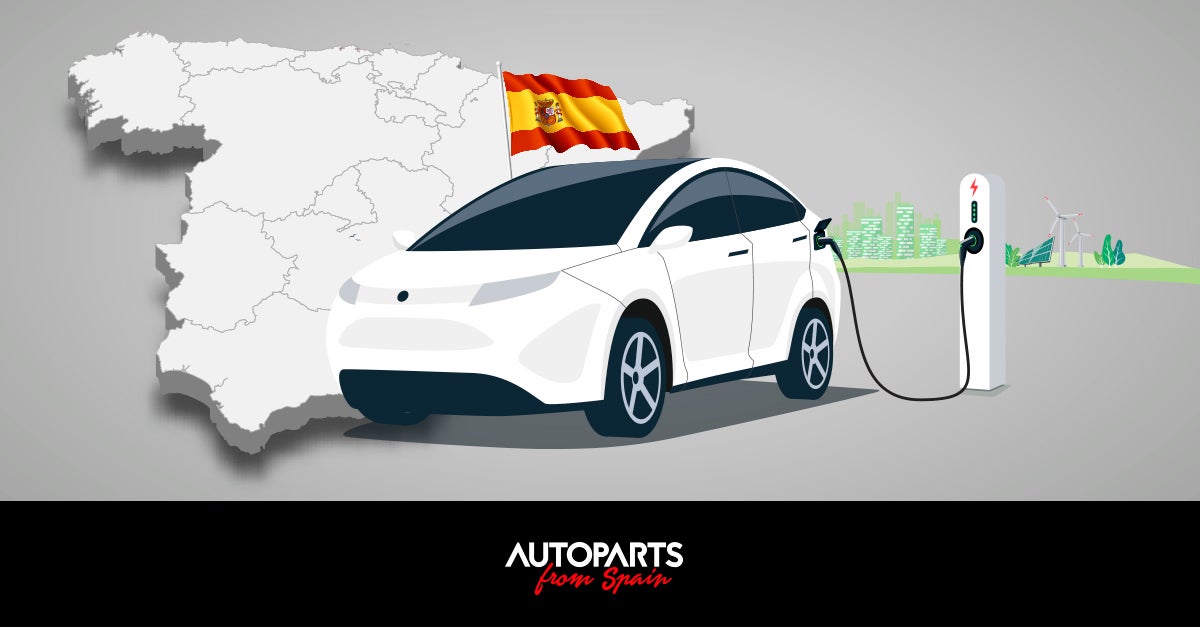It is estimated that transport causes around 28% of greenhouse effect gases Europe-wide. Because of that, Europe’s automotive industry has to focus on how to contribute to achieving the European Union’s goal for zero net emissions in 2050.
The automotive industry is no stranger to such challenges and is focusing its strategies and processes in the direction of addressing climate change – and improving fuel economy and efficiency. Last May, the European Association of Automotive Suppliers (CLEPA) held the 13th edition of the event “Material Regulation”. The event confirmed that sustainability is now a priority for the automotive supply chain.
New developments such as alternative propulsion technologies, light-weighting and the increasing use of recycled and biologically-based materials are some of the new proposals for long-term success in addressing greenhouse gas emissions.
Spanish automotive suppliers are committed to both the 2050 Paris Accord and the European Union’s objective of reaching climate neutrality in 2050, by bringing diverse solutions to reach necessary sustainable mobility objectives. In order to achieve this ambitious goal a number of initiatives in different areas are needed. These can be seen in areas such as developing a range of propulsion system technologies, including efficiency improvements in internal combustion engines and their adaptation to renewable and low-carbon fuel (hydrogen, biofuel and synthetic fuel), electrification (with battery or fuel cell) and different degrees of hybridization, offering multiple solutions adapted to every need.
For example, Fersa Bearing, one of the Spanish suppliers belonging to the initiative ‘Autoparts from Spain’, says it has developed a product portfolio intended to reduce 10% of electric vehicle weight, while keeping the same features and even reducing friction. “We have been working for a long time with alternative materials to avoid steel in order to fundamentally reduce the system’s weight: ceramic materials, aluminium or plastic. Introducing those materials carry some other potential benefits including a better electric isolation, better turning speeds and a reduction of vibrations; all of those being very relevant features for electric vehicles,” says Óscar Pascual, Head Marketing at Fersa Bearings.
Another Spanish supplier working on light-weighting solutions to reduce CO2 emissions is DOGA. “We have, as a group effort, to find out more about the CO2 footprint and with the resulting research results start to work on possible options for its reduction. We are starting to implement a study of product lifecycle to promote improvements. We are not having concrete projects so far,” says Mercè Canal, Marketing Technician at DOGA.
Another company, Enganches Aragón, has just introduced to market what they call “point-charging devices (PCD)” (Dispositivos de Carga Puntual -DCP- in Spanish) for zero emission vehicles. “Those devices allow owners of hybrid, gas, and electric (or without Maximum Towable Mass MTM) vehicles to place a bike or ski rack and a ball luggage rack at the car’s rear,” according to the ball rack towing device company.

‘Gradual approach’ on fossil fuels
At the initiative ‘Autoparts from Spain’ they argue that instead of regulating the end of the internal combustion engine (ICE), we should plan for a gradual reduction of fossil fuels, incentivizing contributions of renewable and low-carbon fuel which allow emission reductions not only for new vehicles but also in the current vehicle parc. Companies like RTS are including components of polymeric material with 25% recycled material in their manufacturing of suspension and steering pieces.
It is pointed out that every ounce matters and companies have to work collaboratively with systems that allow them to reduce CO2 omissions in the vehicle in many areas, such as:
- The recovery systems of braking mechanical or thermic energy of exhaust gases.
- New materials, designs and multi-material structures to reduce weight in components and the vehicle as a whole (every 100 kg of weight reduction decreases 8.5g/km of C02 emissions)
- Improvements in energy efficiency for ventilation, air conditioning and illumination systems and other electric and electronic devices for the car.
- Eco-innovations
- Aerodynamic improvements and reduction in rolling resistance
- Connectivity and automation which allows better mobility and reduced traffic congestion
“Energy efficiency and consumption reduction in vehicles are increasingly demanded features by users and manufacturers. We have worked on three axes: increased durability which will reduce maintenance and repairs, increased efficiency regarding less friction and therefore less energy consumption and finally reducing size and weight to make lighter vehicles and make them more efficient,” says a spokesperson for Fersa Bearings.
With these three areas in focus, this company, member of the initiative of Spanish automotive component suppliers, has developed a range of five bearing families centred in improving efficiency: Hi Pro (durability bearings with good energetic efficiency), Hi Pro PD (high durability bearings which reduce friction 10% and show high levels of efficiency), Hi Pro PD (especially designed to keep their durability and reduce friction by more than 15% despite their size reduction), Ultra Pro (their last development which it says can triple the life span of a standard bearing) and G Pro (bearings with engineering coverings to reduce wear and friction by up to a 40%).
These are some examples on how the Spanish industry of automotive suppliers is transforming itself to contribute to decarbonization and achieve more sustainable mobility.
About ‘Autoparts from Spain’
This is a project conceived around a digital platform that accumulates Spain’s offering of automotive suppliers and equipment providers. It is available in English, Spanish and French languages and contains information on every company including descriptions, images and videos of their products. Multiple queries can be performed on the site. It also tries to sort providers by Autonomous Communities.
The Spanish Association of Automotive Suppliers (SERNAUTO), in a joint effort with ICEX España Exportación e Inversiones, drives this initiative. The objective is to empower the positioning of Spanish suppliers and equipment manufacturers in international markets.







